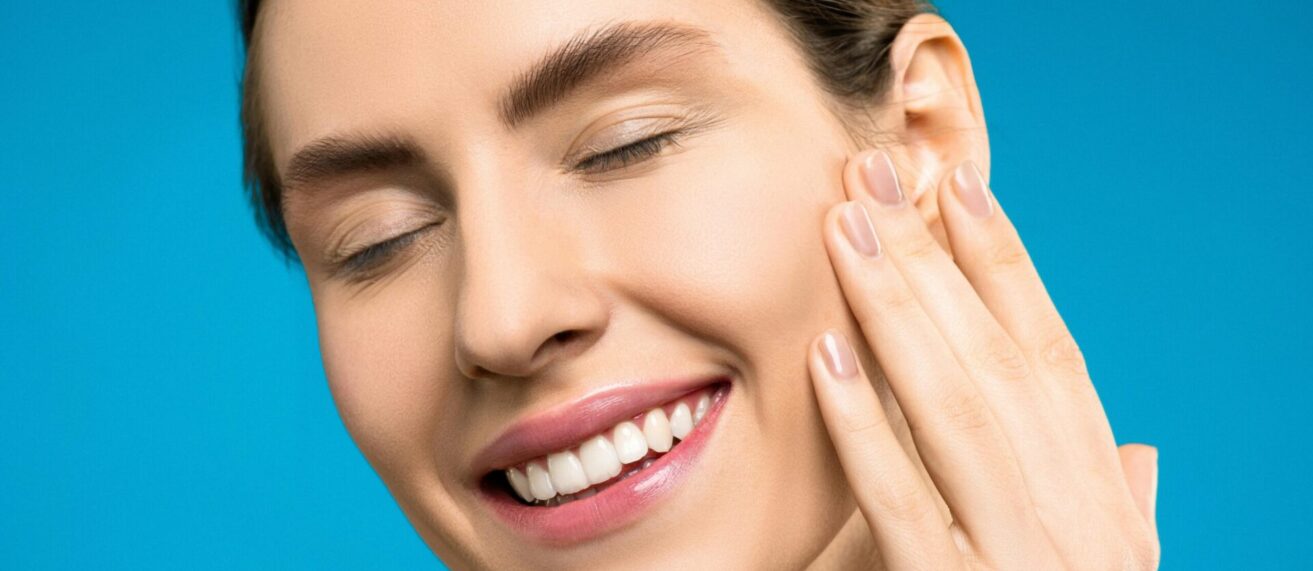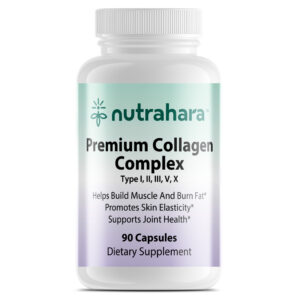
Nutrahara Blog
Nutrahara Blog
Nail Health Secrets: Essential Nutrition and Care for Beautiful Nails
1. Introduction
Nail health is a reflection of your overall well-being. Often overlooked, our nails provide insight into our body’s nutritional status, hydration levels, and potential health conditions. Whether your nails are brittle, discolored, or showing unusual textures, these changes often signal that something is amiss internally. Nail care isn’t just a cosmetic concern but an essential part of self-care that can boost confidence and physical health.
This guide covers all the essential factors affecting nail health, common problems, and practical strategies to improve and maintain strong, healthy nails.
2. Why Nail Health Matters
2.1 The Structure of Nails
Nails are primarily composed of keratin, a protein that forms tough, protective layers. Each nail has several components, including:
- Nail Plate: The hard, visible part of the nail.
- Nail Bed: The skin beneath the nail plate.
- Cuticle: The thin layer of skin at the base of the nail plate.
- Lunula: The half-moon-shaped area at the nail base, which is usually lighter in color.
- Matrix: The part under the skin where new nail cells are generated, influencing nail growth.
Healthy nails are smooth, without pits or grooves, and have a consistent color. Understanding this structure helps you better care for your nails.
2.2 The Importance of Nail Health
Nails serve as both functional tools and aesthetic enhancers. They protect the delicate tissues of your fingertips, aiding in tasks that require fine motor skills. Moreover, nail appearance can signal internal issues like vitamin deficiencies, fungal infections, or even more serious conditions like thyroid disease.
For example, pale or spoon-shaped nails may indicate iron deficiency anemia, while yellow or discolored nails could point to fungal infections or overuse of nail products. Paying attention to these changes can help detect health problems early.
3. Common Nail Problems and Their Causes
3.1 Brittle Nails
Brittle nails are a common complaint, particularly for those exposed to frequent handwashing, harsh chemicals, or nail polish. These nails break easily, flake, or crack. Brittle nails may also be caused by:
- Nutritional Deficiencies: A lack of biotin, iron, and zinc can contribute to weak nails.
- Dehydration: Nails need moisture to stay strong, and dry environments can make them more prone to breakage.
- Exposure to Water and Chemicals: Prolonged exposure to water, detergents, and cleaning products can strip nails of essential oils, leading to brittleness.
3.2 Discoloration and Texture Changes
Healthy nails should be a pinkish color due to the blood supply in the underlying nail bed. Discoloration—whether yellow, white, or greenish—can signal infections, trauma, or health concerns. Common texture changes include:
- Vertical Ridges: Usually harmless and a natural sign of aging.
- Horizontal Ridges (Beau’s Lines): Indicate an interruption in nail growth due to illness, injury, or nutritional deficits.
- Pitting: Small depressions in the nail surface, often associated with skin conditions like psoriasis.
3.3 Nail Breakage and Splitting
Onychoschizia, or splitting of nails, often results from external trauma or environmental factors. Using nail hardeners, nail polish removers with acetone, or constant exposure to moisture can weaken nails, making them more prone to breaking. Additionally, habits like nail-biting or using nails as tools increase the risk of nail damage.
4. Factors Affecting Nail Health
4.1 Nutrition: The Foundation of Strong Nails
A nutrient-rich diet is key to building stronger nails. Essential vitamins and minerals for nail health include:
- Biotin (Vitamin B7): Known for improving nail thickness and reducing brittleness, biotin is one of the most vital nutrients for healthy nails. Eggs, nuts, and seeds are excellent sources.
- Vitamin B12: Helps in red blood cell formation, ensuring your nails get the oxygen they need to grow. A B12 deficiency can cause blueish or purplish nails.
- Iron: A lack of iron can lead to thin, concave, or spoon-shaped nails (koilonychia). Leafy greens, meat, and fortified cereals provide this important mineral.
- Collagen: This structural protein supports nail integrity. Supplements containing collagen peptides can improve nail strength and reduce brittleness.
Ensuring you’re consuming enough protein is also crucial, as nails are primarily made of keratin, a protein. Incorporating lean meats, beans, and legumes into your diet will supply your body with the building blocks it needs.
4.2 Hydration: Moisture for Healthy Nails
Water is essential for all body functions, including nail health. Dehydration can lead to dry, brittle nails that are prone to breaking. To keep nails hydrated:
- Drink plenty of water throughout the day.
- Moisturize your nails and cuticles regularly using creams or oils rich in nutrients like vitamin E or jojoba oil.
- Avoid long periods of exposure to water, such as soaking in baths or doing dishes without gloves, as this can strip nails of their natural moisture.
4.3 Hygiene and Nail Care
Proper nail hygiene can prevent infections and keep nails looking their best. Basic nail care includes:
- Regular Trimming: Trim nails straight across to prevent ingrown nails, and use a file to smooth any sharp edges.
- Cleaning: Gently clean under nails to avoid the buildup of bacteria and debris.
- Avoid Biting Nails: Biting your nails introduces bacteria and can damage the nail bed.
Keeping nails clean and trimmed helps avoid fungal infections, which often manifest as discoloration and changes in nail thickness.
4.4 Lifestyle Habits and Their Impact on Nails
Lifestyle factors can have a significant impact on nail health. For example:
- Nail Biting: Constantly biting your nails can damage the nail bed, leading to misshapen or weakened nails.
- Overuse of Nail Products: Frequent use of acrylics, gels, or harsh nail polishes can weaken your nails over time, causing breakage and thinning.
- Excessive Moisture: Being in water for long periods (e.g., swimming or dishwashing) can make nails soft and more susceptible to splitting.
To protect nails, wear gloves when cleaning, give your nails a break from polish, and avoid harsh chemical-based nail products.
5. How to Improve Nail Health
5.1 Dietary Adjustments for Better Nail Health
To maintain nail health, focus on incorporating nutrient-dense foods into your diet. Some nail-friendly foods include:
- Eggs: High in biotin and protein, which are essential for nail growth.
- Leafy Greens: Spinach and kale provide iron, folate, and calcium, all critical for healthy nails.
- Nuts and Seeds: Almonds and sunflower seeds offer zinc, magnesium, and omega-3 fatty acids, supporting nail growth and reducing brittleness.
- Fatty Fish: Rich in omega-3 fatty acids, fish like salmon can help moisturize and protect nails from within.
For those who find it challenging to meet their nutritional needs through diet alone, supplements such as Biotin, Collagen, and Vitamin B Complex can provide additional support for nail health.
5.2 A Healthy Nail Care Routine
Maintaining a consistent nail care routine is crucial for promoting growth and preventing damage. Key steps include:
- Moisturizing Regularly: Apply hand cream or cuticle oil daily to keep your nails hydrated.
- Trimming and Filing: Trim nails straight across and use a file to smooth the edges, reducing the risk of snagging and splitting.
- Polish-Free Days: Give your nails a break from nail polish, gels, and acrylics periodically to allow them to “breathe” and recover.
In addition to daily care, avoid using nails as tools to open things or scrape surfaces, as this can cause breakage and damage to the nail bed.
5.3 Supplements That Boost Nail Health
While a balanced diet is the best way to maintain healthy nails, supplements can be helpful for those with deficiencies. Two key supplements to consider are:
- Vitamin B Complex: Studies have shown that Vitamin B Complex supplements can improve nail strength and reduce splitting and breakage.
- Collagen Complex: This protein is essential for the production of keratin, the primary component of nails. Collagen supplements can increase nail growth and reduce brittleness over time.
Both of these supplements can be taken daily, often alongside other vitamins or minerals, to help nourish your nails from the inside out.
6. 7 Tips for Healthier Nails
- Eat a Balanced Diet: Incorporate biotin-rich foods like eggs, nuts, and leafy greens to promote nail strength and growth.
- Stay Hydrated: Drink plenty of water daily to prevent dry, brittle nails.
- Moisturize Regularly: Apply hand creams or cuticle oils to keep nails and surrounding skin hydrated.
- Limit Harsh Chemicals: Avoid overuse of acetone-based removers and harsh nail products.
- Use Gloves: Protect your nails from water and cleaning agents by wearing gloves during chores.
- Trim and File Carefully: Trim nails straight across and file gently to avoid breakage.
- Take Nail-Friendly Supplements: Consider biotin or collagen supplements to strengthen nails and reduce brittleness.
7. Testimonials from Women Supporting Nail Health
- Sarah, 34:
“I struggled with brittle nails for years, but after following the tips in this article—especially focusing on hydration and incorporating biotin into my diet—my nails have never been stronger!”
- Emma, 42:
“This guide was a game changer for me. Moisturizing daily and taking collagen supplements as suggested have made such a noticeable difference. My nails are no longer splitting!”
- Jessica, 29:
“Learning about the importance of nutrition for nail health was eye-opening. After adding more leafy greens and fatty fish to my diet, my nails are growing faster and look healthier than ever.”
- Natalie, 50:
“I used to deal with constant nail breakage, but since adopting the nail care routine from this article, my nails have become so much stronger. I especially love the tip about using gloves while cleaning!”
- Lillian, 38:
“The section on supplements really helped me understand why my nails were so weak. Since starting biotin supplements, my nails are thicker, and I don’t have to worry about them breaking as much!”
8. Conclusion
Nail health is not only a reflection of your personal care routine but also your internal health. By paying attention to the signs your nails give—whether it’s discoloration, brittleness, or ridging—you can gain valuable insight into your body’s needs. Addressing issues through proper nutrition, hydration, and careful nail care can lead to stronger, more beautiful nails.
Incorporating biotin-rich foods, staying hydrated, and adopting a gentle nail care routine can make a significant difference. For those looking for additional support, supplements like Premium Collagen Complex and Vitamin B Complex can boost nail resilience, giving you healthier, stronger nails in the long run.
Written by the Nutrahara Team
This article was prepared by the expert team at Nutrahara, which includes experienced nutrition scientists and naturopaths dedicated to advancing women’s health through natural wellness solutions. We combine scientific research with holistic practices to help you live your healthiest life. Connect with us on LinkedIn to stay updated on the latest in women’s health and wellness.










